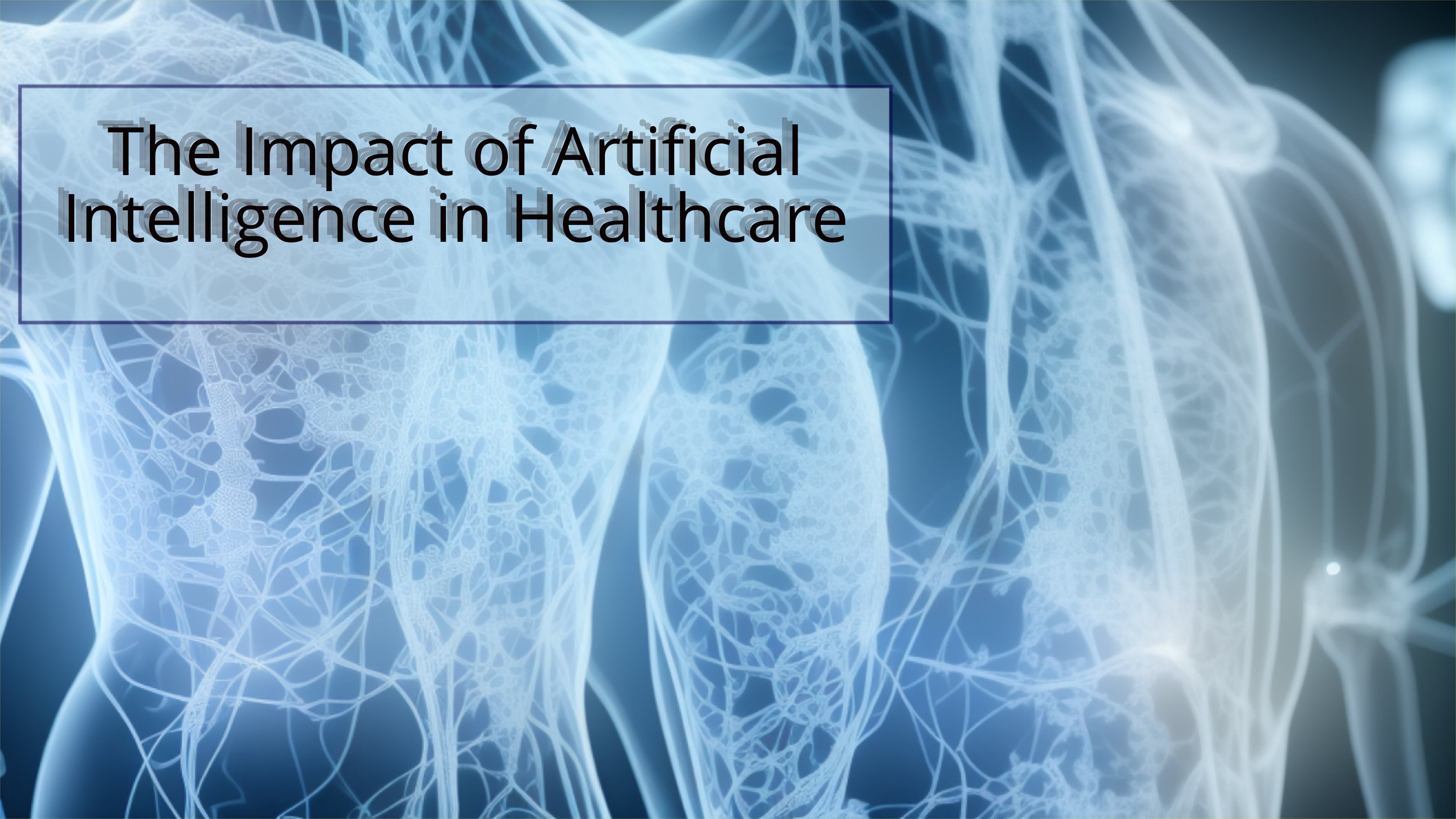The Impact of Artificial Intelligence in Healthcare
Artificial intelligence (AI) has revolutionized various industries, and its integration into healthcare is no exception. This blog post explores the profound implications of AI in healthcare, showcasing how this cutting-edge technology is reshaping patient care, diagnosis, treatment, and the overall healthcare industry. Dive into the world where AI meets healthcare and discover the transformative power it holds.

Overview of AI in Healthcare
In recent years, the application of AI in healthcare has gained significant momentum. From streamlining administrative tasks to enhancing clinical decision-making processes, AI technologies are redefining the way healthcare professionals deliver care. But what exactly is artificial intelligence in healthcare, and how does it impact patient outcomes and healthcare systems? Let’s explore these questions and more in detail.
The Role of Machine Learning in Healthcare
Machine learning, a subset of AI, plays a pivotal role in revolutionizing healthcare delivery. By analyzing vast amounts of data, machine learning algorithms can identify patterns and trends that humans may overlook. This capability not only aids in early diagnosis and personalized treatment plans but also improves the overall efficiency of healthcare systems. How is machine learning transforming the landscape of healthcare, and what are the key benefits it offers to patients and healthcare providers?
Enhancing Diagnosis and Treatment with AI
One of the most significant applications of AI in healthcare is its role in diagnosis and treatment. Through advanced algorithms and predictive modeling, AI systems can assist healthcare professionals in making accurate diagnoses and recommending optimal treatment strategies. How does AI enhance the accuracy and speed of diagnosis, and what are the implications for patient care and health outcomes?
Leveraging AI to Improve Patient Care
AI has the potential to revolutionize patient care by enabling proactive interventions, personalized treatment plans, and continuous monitoring of health conditions. By leveraging AI technologies, healthcare providers can offer tailored care experiences that cater to individual patient needs. How can AI tools be used to enhance patient engagement, improve health outcomes, and transform the delivery of care?
Advantages of AI in Healthcare Applications
The benefits of integrating AI into healthcare applications are vast and multifaceted. From reducing diagnostic errors to optimizing resource allocation, AI technologies offer a wide range of advantages for both patients and healthcare organizations. What are some examples of successful AI implementations in healthcare, and how do they contribute to improving the quality and efficiency of healthcare services?
The Future of AI in Healthcare
As AI continues to evolve, its impact on the healthcare sector is expected to grow exponentially. From AI chatbots for patient support to deep learning algorithms for medical image analysis, the possibilities for leveraging AI in healthcare are endless. What are some emerging trends in AI technology for healthcare, and how can organizations harness the full potential of AI to drive innovation and improve patient care?
Conclusion
In conclusion, the integration of artificial intelligence in healthcare represents a paradigm shift in the way we approach patient care, diagnosis, treatment, and healthcare delivery. By embracing AI technologies, healthcare professionals can unlock new opportunities for enhancing efficiency, improving outcomes, and transforming the overall quality of care. As we look towards a future where AI plays a central role in healthcare, it is essential to recognize the immense potential that this technology holds for shaping the future of medicine.
Key Takeaways
- AI in healthcare is transforming patient care and clinical decision-making processes.
- Machine learning algorithms are revolutionizing diagnosis and treatment practices.
- AI technologies offer a wide array of benefits for patients, healthcare providers, and organizations.
- The future of AI in healthcare promises innovative solutions for improving healthcare delivery and outcomes.
Frequently Asked Questions: The Impact of Artificial Intelligence in Healthcare
1. How is artificial intelligence (AI) being utilized in the healthcare industry?
Artificial intelligence, commonly referred to as ai, is being increasingly applied in various aspects of the healthcare sector. Healthcare organizations are leveraging ai technologies to improve healthcare delivery, enhance patient care, and streamline health records management through the utilization of advanced ai algorithms.
2. What are the benefits of integrating AI systems in healthcare settings?
The integration of AI systems in healthcare can lead to significant improvements in health outcomes, as ai can help in diagnosis and treatment, assist healthcare professionals in decision-making, and ultimately enhance the overall quality of healthcare delivery.
3. How is machine learning utilized to enhance healthcare services?
Machine learning algorithms are used in conjunction with AI systems to analyze vast amounts of data from health records and electronic health records, enabling more accurate predictions, personalized treatment plans, and improved healthcare outcomes for patients.
4. What are some examples of AI applications in clinical practice?
AI is increasingly being employed to interpret medical images, assist in diagnosis and treatment decisions, and even automate routine administrative tasks to optimize the workflow of healthcare providers in diverse healthcare settings.
5. How can AI assist healthcare professionals in their daily responsibilities?
AI tools can be utilized to help healthcare professionals analyze complex medical data, provide treatment recommendations, identify patterns in patient records, and ultimately support evidence-based decision-making processes in the management of healthcare organisations.
6. What advancements have been made in the application of AI in the healthcare sector?
The advances in AI have paved the way for innovative healthcare applications, such as predictive analytics, remote patient monitoring, AI-powered diagnostics, and personalized healthcare interventions tailored to individual patient needs.



